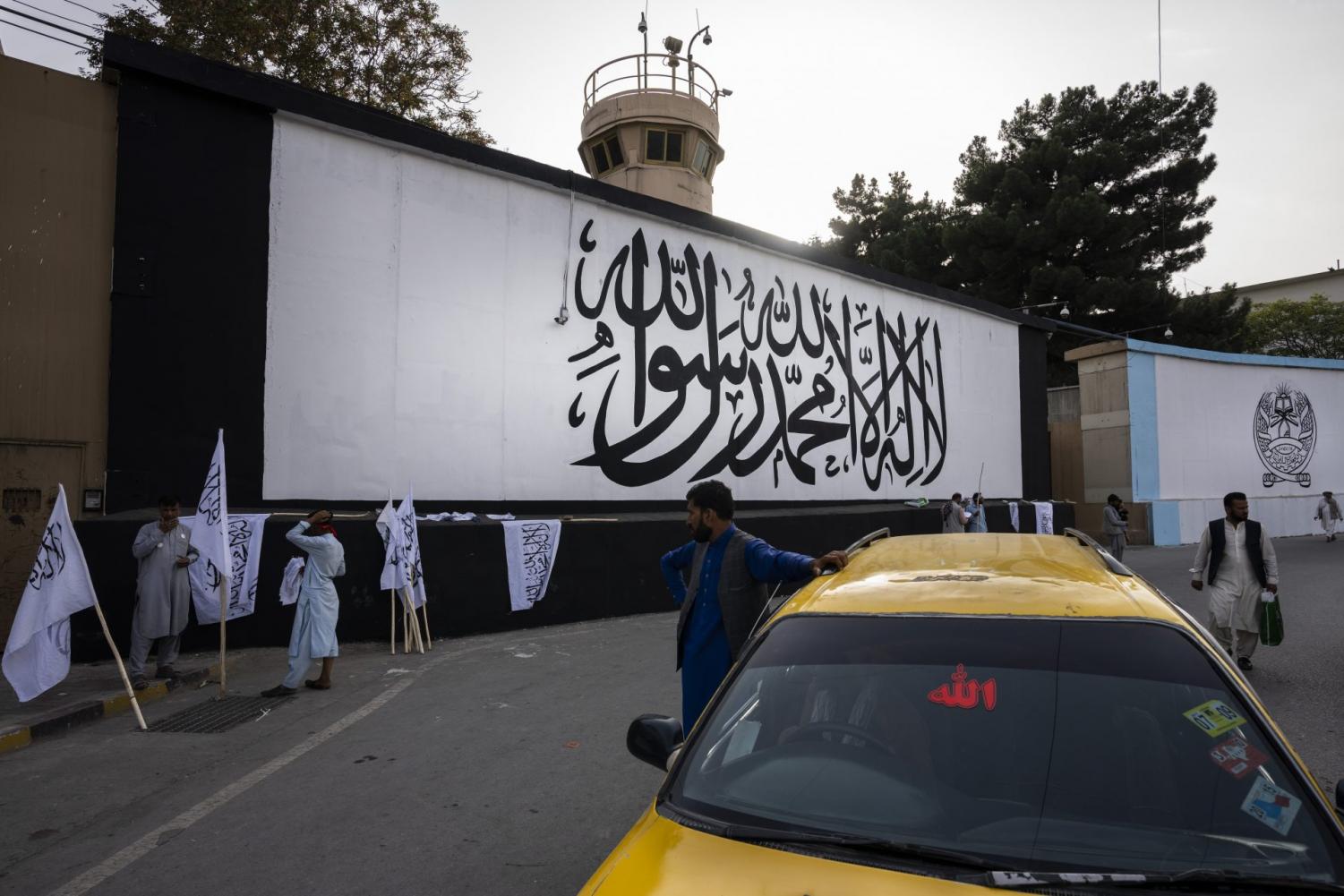
With Afghanistan now under Taliban control, Americans are left wondering how we spent the past two decades and over $2.3 trillion to reach this seemingly inevitable outcome.
The United States military officially departed Afghanistan on Aug. 30, ending a 20-year occupation of the region and the longest war in American history. Now, many in the media are blaming President Joe Biden for his decision to withdraw from the country in lieu of the Taliban’s strength.
But these critics should take a step back and consider what more the U.S. could possibly accomplish by remaining in the region any longer. The original aims of the 2001 Afghanistan invasion seem to be completely lost after years of moving the goalposts to cater to American exceptionalism and the military-industrial complex.
“Honestly, we achieved our initial objectives within six months of the 9/11 attacks,” says retired U.S. Army Col. Arnold V. Strong. Strong was deployed to Afghanistan three times during his service, and saw the overall aims of the American occupation morph throughout this time.
“The goal was to make it such that Afghanistan was no longer a place that would provide safe harbor for al-Qaeda, as Islamic fundamentalist terrorists, to have a safe place to plan, train and logistically enable themselves to do another 9/11-style attack,” Strong told The DePaulia. “I think those objectives were met years ago.”
Despite ostensibly meeting these goals so long ago, the United States remained in the region to install a self-sufficient, Western democratic government against the Taliban. Fellow Afghanistan veteran Sgt. Tim Navarro believes that this may have been unachievable in hindsight.
“Our original goal was completely winnable,” Navarro said. “But creating a long-term, stable government that could thrive against the Taliban without our help never seemed possible … Trying to force a Western-style of government on a group of people that didn’t ask for it to begin with never seemed like it was [achievable] in the long run.”
Navarro’s account of the Afghanistan war speaks to American exceptionalism and our national hubris. The governing style that works here and in nations like ours doesn’t necessarily work in every other nation — particularly when the nation in question is being forced into this government and lacks the popular headship required to lead it.
This is precisely why the United States-backed Afghan government collapsed so quickly, explained Nesreen Akhtarkhavari, director of Arabic studies at DePaul University.
“The Afghan government collapsed because the leaders were corrupt, self-serving and had not engaged with the people of Afghanistan,” Akhtarkhavari wrote in an email to The DePaulia.
Akhtarkhavari believes that the United States’ lack of understanding of Afghan culture and history ultimately doomed our attempts to install a long-term government there.
“I believe that the U.S. could have stopped the war if it focused on better understanding the Afghani culture and worked with tribal leaders and various stakeholders on building true coalition, promoting local NGOs, working with youth, improving the county’s infrastructure, education, and community-building efforts, and supporting an honest coalition government,” Akhtarkhavari wrote.
Perhaps even more damning than the U.S. government’s misunderstanding of Afghan culture were the financial gains of the occupation. It’s no secret that the Afghanistan war has been massively profitable for powerful American defense contractors and their shareholders. In fact, defense stocks outperformed the overall stock market by 58 percent over the course of the war.
This alone should raise questions as to why we were involved in the region for so long, especially considering that the boards of directors for the top five U.S. defense contractors (Boeing, Raytheon, Lockheed Martin, Northrop Grumman and General Dynamics) all include retired high-level military officials.
While the war may have failed to deliver Afghanistan a stable, democratic government, it was certainly a success for the shareholders of these defense contractors, as well as the politicians and lobbyists that received their funding.
So is Biden to blame for the Taliban’s brisk takeover of Afghanistan? It seems trivial to assume so, considering this history of corruption that motivated our occupation long before his presidency. There is a legitimate criticism for the circumstances surrounding the exit, however.
“We should have gotten everyone out before removing our military,” Navarro said, in reference to the Afghan allies that are now struggling to flee the country following the Taliban takeover.
But for the cable news talking heads that continue to make the case for a seemingly indefinite Afghanistan occupation, what more could you possibly be hoping to gain? Considering the glaring conflicts of interest between mainstream news and these same defense agencies, we should take what we hear on CNN and Fox with a grain of salt.
It’s frankly infuriating that many of these networks choose to blame Joe Biden for his decision to exit the region after they profited from 20 years of combat, over $2 trillion of taxpayer investment, and the thousands of veterans whose lives were lost or forever changed by the war in Afghanistan.
"Opinion" - Google News
September 13, 2021 at 09:14PM
https://ift.tt/3A9u7ei
Opinion: Dear cable news, leaving Afghanistan was the right choice - The Depaulia
"Opinion" - Google News
https://ift.tt/2FkSo6m
Shoes Man Tutorial
Pos News Update
Meme Update
Korean Entertainment News
Japan News Update
No comments:
Post a Comment